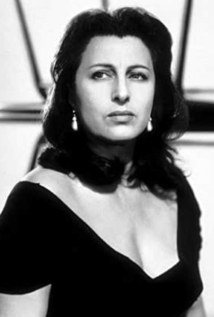Anna Magnani
Anna Magnani was born in Rome, Italy (not in Egypt, as some biographies claim), on March 7, 1908. She was the child of Marina Magnani and an unknown father often said to be from Alexandria, Egypt, but whom Anna herself claimed was from the Calabria region of Italy although she never knew his name. Raised in poverty by her maternal grandmother in Rome after her mother left her, Anna worked her way through Rome's Academy of Dramatic Art by singing in cabarets and night-clubs, then began touring the countryside with small repertory companies.
Although she had a small role in a silent film in the late 1920s, she was not known as a film actress until Doctor, Beware (1941), directed by Vittorio De Sica. Her break-through film was Roberto Rossellini's Roma, ciudad abierta (1945) (A.K.A. Open City), generally regarded as the first commercially successful Italian neorealist film of the postwar years and the one that won her an international reputation. From then on, she didn't stop working in films and television, winning an Academy Award for her performance in the screen version of Tennessee Williams' The Rose Tattoo (1955), a part that was written for her by her close friend Williams. She worked with all of Italy's leading directors of the 1950s, 1960s and 1970s.
She was renowned for her earthy, passionate, woman-of-the-soil roles. She and Rossellini were lovers for some years after Open City, until he began his infamous affair with Ingrid Bergman. She had one child, Luca, with Italian actor Massimo Serato. The boy was later stricken with polio and Magnani dedicated her life to caring for him. Her only marriage, to Italian director Goffredo Alessandrini in the mid-1930s, lasted only a short while and ended in an annulment. Her last film was Federico Fellini's Roma (1972). She died in her native Rome from pancreatic cancer the following year at age sixty-five.

